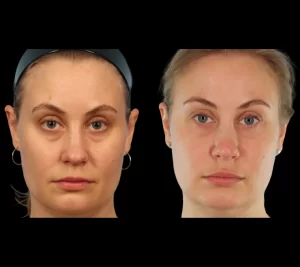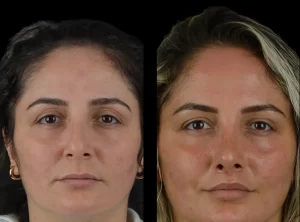In a world obsessed with beauty and the illusion of perfection, liposuction has emerged as a fast-track solution for those chasing the ideal body. It’s pitched as a miracle—a few hours on the operating table in exchange for a slimmer waist, contoured thighs, or a chiseled jawline. Yet beneath the surface of this glamorous promise lies a darker truth: a culture of secrecy, unrealistic expectations, and often, disappointment. With procedures becoming more accessible globally, even in places like South Asia—where liposuction cost in Pakistan is significantly lower than in the West—the dream is marketed aggressively. But what are people really buying?
The Fantasy of the “Perfect” Body
Liposuction isn’t just about fat removal—it’s a fantasy sculpted by society. From magazine covers to Instagram influencers, the message is clear: slim is desirable, and effort is optional. For many, this creates a belief that changing their body can change their lives—boost their confidence, attract better partners, or find success. This mindset turns a medical procedure into a psychological escape route, where the scalpel seems to promise the kind of transformation self-discipline might never achieve.
But this fantasy is dangerously oversold. While liposuction can remove fat from specific areas, it doesn’t fix lifestyle habits, nor does it guarantee long-term results. Even worse, it creates the illusion that perfection is within reach for anyone willing to pay—without acknowledging the risks or limitations. People begin chasing a dream carved out by filters and fame, not grounded in reality.
The Culture of Secrecy
One of the most damaging aspects of liposuction’s popularity is the silence that surrounds it. Celebrities and influencers often deny having had procedures, leading followers to believe their bodies are purely the result of clean eating and good genes. This lack of transparency distorts public perception, leaving everyday people to wonder why their gym efforts aren’t yielding the same results. It breeds insecurity and shame, driving more people toward cosmetic solutions while making them feel like failures for needing it in the first place.
Moreover, many undergo liposuction in secret, afraid of judgment or stigma. They fear being labeled vain or weak, even though the societal pressure to conform is what pushed them there. The result? A community of patients who don’t talk, don’t warn others about their complications, and don’t disrupt the profitable illusion that liposuction is a low-risk, high-reward magic trick.
The Reality: Risks, Regret, and Reinvention
While liposuction is generally safe when performed by qualified professionals, it’s not without its dangers. Infections, scarring, uneven fat removal, and anesthesia complications are just a few of the risks. Even more concerning is the psychological aftermath—many report feelings of regret, depression, or body dysmorphia post-surgery. When the fantasy doesn’t match the outcome, disappointment sets in. And because the process is so often done in secret, those struggling with the emotional toll have few people to turn to.
For some, the initial results are intoxicating. Clothes fit better, compliments roll in, and confidence surges. But as the months go by and the body shifts or gains weight again, the same insecurities creep back. Rather than treating the root causes—like diet, exercise habits, or self-esteem—many consider another procedure. Thus begins a cycle of chasing results that no surgery can permanently provide.
The Industry’s Role in Feeding the Illusion
The cosmetic surgery industry thrives on dissatisfaction. Clinics bombard social media with before-and-after photos, often exaggerated or selectively chosen. Consultations are marketed as empowering, and financing plans make the dream seem financially accessible. Few are transparent about the emotional preparation, aftercare, or lifestyle changes required for sustainable results.
This manipulation extends globally. In countries where affordability draws international patients, safety standards may vary, and proper consultation may be skipped in favor of high turnover. This is especially true in medical tourism hubs, where patients fly in and out within days. The system is built to make money—not to support long-term wellness. Ethical concerns are brushed aside in favor of volume and profit.
Breaking the Cycle: Real Self-Acceptance Over Ideal Bodies
The true lie of liposuction isn’t the surgery itself—it’s the belief that it will fix what’s broken inside. For many, body image struggles run deeper than aesthetics. They are rooted in childhood teasing, cultural expectations, or relentless media comparisons. Surgery might provide temporary relief, but it doesn’t rewrite those stories. At Hashinvasive, we believe real transformation begins with self-awareness, not just cosmetic change.
To truly break free from the fantasy, a cultural shift is needed—one that emphasizes health over shape, and self-acceptance over societal approval. This doesn’t mean condemning cosmetic surgery; it means questioning the motivations behind it. Is it for self-care or self-erasure? Empowerment or escape?
Instead of chasing secret procedures, imagine a world where people were open about their struggles, where imperfections weren’t edited out of existence, and where beauty was defined by authenticity, not symmetry. In such a world, liposuction would be a choice—not a silent, desperate plea for validation.






